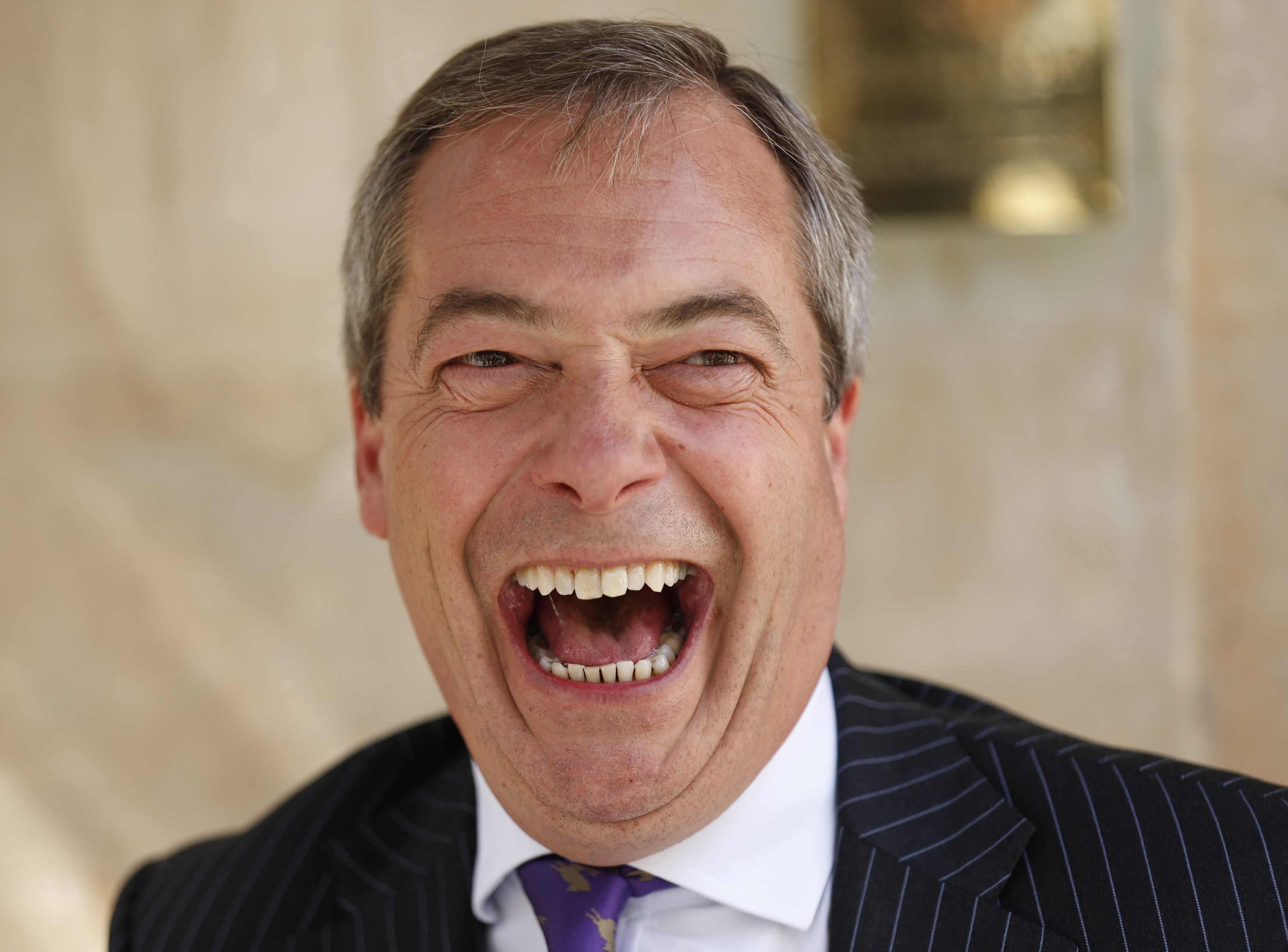 IT was a 20-minute bike ride that changed everything.
IT was a 20-minute bike ride that changed everything.
Cycling back from the University of Gibraltar referendum count in the wee small hours of June 24, I assumed Britain had voted to Remain in the EU. YouGov called it 52% for Remain.
YouGov called it 52% for Remain. Ipsos MORI had it higher at 54%. Nigel Farage had conceded defeat, sending a ripple of confidence among the assembled politicians of Gibraltar, bastion of Remain.
“It’s been an extraordinary referendum campaign, turnout looks to be exceptionally high and looks like Remain will edge it,” Farage said.
“UKIP and I are going nowhere and the party will only continue to grow.”
Well, he was right about one thing. After this month’s general election, it’s clear UKIP are  going nowhere.
going nowhere.
But by the time I got home and turned on Radio 4 that night, it was clear Leave had the whip hand. Sunderland, with its huge Nissan factory threatened by an EU exit, had voted to Leave 61% to 39, a far bigger margin than pollsters predicted.
That was the moment everything changed. Eight, sleepless hours later, David Cameron resigned and I took a phone call from my tearful editor. “We’re newspaper men,” he said. “It’s our job now to represent our community.”
I was back on the streets of Gibraltar that morning gauging the mood. In what was to become a familiar move, Spanish Foreign Minister Jose Manuel Garcia Margallo had waded straight in, claiming a Spanish flag was now close to being planted on the Rock.
Until his departure in October 2016, Margallo made it his own personal mission to torment Gibraltar, seizing every opportunity to issue threats about Spain gaining sovereignty over the Rock. His supporters even threatened me.
One morning, I received an anonymous phone call from a supporter of Margallo, a man claiming to be a member of the Spanish security forces. He warned me I would be arrested if I carried on writing critical articles about Margallo and that everything I wrote about him was being checked by Spanish police.
Thankfully, Margallo was soon gone. But the PP’s grasping claim over Gibraltar has persisted, culminating in the EU negotiating guidelines, published in April, which give Spain an effective veto over Gibraltar being part of any deal the UK strikes.Tiny Gibraltar could yet become the biggest hurdle in the forthcoming negotiations.
Back in the UK, the weeks after the referendum saw Theresa May sweep into No 10. Her infamous phrase ‘Brexit means Brexit’ found its way into the public lexicon but nobody really knew what Brexit meant.
As the year went on, the much-feared Brexit recession failed to materialise and, by November, unemployment had dropped to 4.8%, its lowest level since 2005.
Both camps battled over what the jobless total meant. Figures from the Office for National Statistics showed the number of people working in the UK had risen by 454,000 in the last year. Less than half those jobs were taken by people with British nationality. Brexit supporters claimed it showed British jobs are being taken by foreign workers; anti-Brexit campaigners pointed to it as proof that the growth of Britain’s economy depends on employers hiring workers from the EU.
Meanwhile, Boris Johnson had formed Change Britain, pushing May to opt for a hard Brexit. But it wasn’t just her Foreign Secretary heaping pressure on the Prime Minister. In November, three High Court judges ruled May couldn’t trigger Article 50 without parliament’s consent. The PM had vowed she would do this by March, 2017. Suddenly, those plans were in grave doubt.
A landmark speech in January laid out May’s vision for what Brexit should mean. The UK must leave the single market and the customs union, she said. May also conceded that parliament would have to vote on any final Brexit deal. The following day, British bank HSBC announced it would pull 1,000 staff out of London and move them to Paris once Brexit took effect.
In Spain, expats had got organised. Groups like Bremain In Spain and Brexpats in Spain were doing a sterling job of advising the 300,000 Brits living here what their rights were – and what was at stake. Access to health care, pensions even the right to remain were up in the air. Campaigners like Anne Hernandez mounted a lobbying offensive, concentrating efforts on Spanish local and national politicians.
When the Olive Press spoke to leading campaigner and Guardian journalist Giles Tremlett, he relayed the worrying news that chief EU negotiator Michel Barnier had told campaigners that the rights of EU citizens in the UK would not be ringfenced if no overall deal was reached. ‘No deal is better than a bad deal’, was May’s mantra. She is wrong about that.
On March 29, May triggered Article 50. The following day, the EU’s draft negotiating guidelines sparked outrage, with Spain handed an effective veto over Gibraltar. A few days later The Sun published its famous Up Yours Senors front page and beamed images onto the Rock, as Gibraltar became the number-one news story across Europe.
 Emboldened by her poll ratings, May called a snap general election in May. But a disastrous campaign, and a spirited showing from Labour leader Jeremy Corbyn, saw the Tories lose their majority. Only a deal with the hard-right DUP will allow May to pass her bills. But for the politically enfeebled Tory leader, it may already be too late. With the knives sharpening behind her, it is questionable how much longer she can limp on.
Emboldened by her poll ratings, May called a snap general election in May. But a disastrous campaign, and a spirited showing from Labour leader Jeremy Corbyn, saw the Tories lose their majority. Only a deal with the hard-right DUP will allow May to pass her bills. But for the politically enfeebled Tory leader, it may already be too late. With the knives sharpening behind her, it is questionable how much longer she can limp on.
This month, her ‘fair and serious’ proposals on EU citizens were slammed as ‘pathetic’ by The 3 Million campaign group in Britain. European Commission head Jean-Claude Juncker labelled them ‘not sufficient’ – another poke in the eye for May in this ongoing saga.
Over the past year, British politics has surpassed House Of Cards for sheer drama. As well as Brexit, the appalling murder of Jo Cox, the terrorist outrages in Westminster, Manchester, London Bridge and Finsbury Park and the carnage of Grenfell Tower have buffeted the country. Britain appears in a state of chaos. And one year on from that momentous vote, our futures still hang in the balance.
Click here to read more Spain News from The Olive Press.



